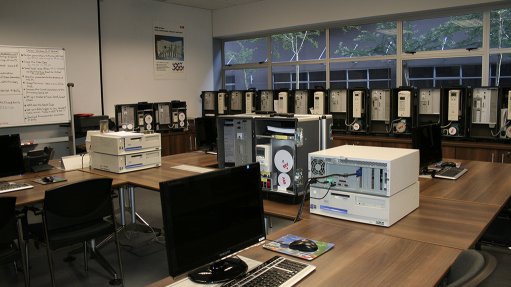
CULTURE SHIFT All prospective students are now urged to complete the online prerequisites at their own place of work or home, prior to attending the practical training at ABB
ABB University – which operates under the auspices of technology provider ABB – has adapted successfully to the different education and training environment ushered in by the Covid-19 pandemic.
The institution offers a “comprehensive training portfolio” for engineers and programmers, as well as maintenance and operations personnel for ABB products, processes and technology advances.
“We already had a blended approach to learning with e-learnings, webinars, and practical training being part of our standard offering,” ABB Southern Africa technical training manager Maritsa Smith tells Engineering News.
All prospective students are now urged to complete the online prerequisites at their own place of work or home, prior to attending the practical training at ABB.
Customers who in the past would have visited ABB Longmeadow to complete their online theoretical courses will now complete these at their own premises.
This will limit travelling across provincial and national borders, as well as reduce the face-to-face classroom training courses.
“I do believe that in our ‘new normal’ we will focus a lot more on the delivery of training via Microsoft Teams and Skype in the form of webinars,” says Smith.
“But for in-person training, our classrooms are large enough to adhere to social distancing standards. And no students will sit in close proximity to another. We have implemented automatic hand sanitisers at all entrances, with stickers and posters visible to remind everyone of the importance of social distancing and the washing of hands and wearing of masks,” adds Smith.
However, Smith understands that not every student will be able to attend classroom training.
“We mitigated this by encouraging our students to complete their prerequisite via e-learning, so when they can attend a session, they will only need to complete the practical training,” adds Smith.
“Further, we started recording YouTube videos with some of our trainers to address topical issues about the operation and maintenance of the products the students would typically engage with during training.”
Smith stresses that online training is also likely to spur on innovation in industry, helping to speed up the skills transfer needed for the introduction of Industry 4.0, for example.